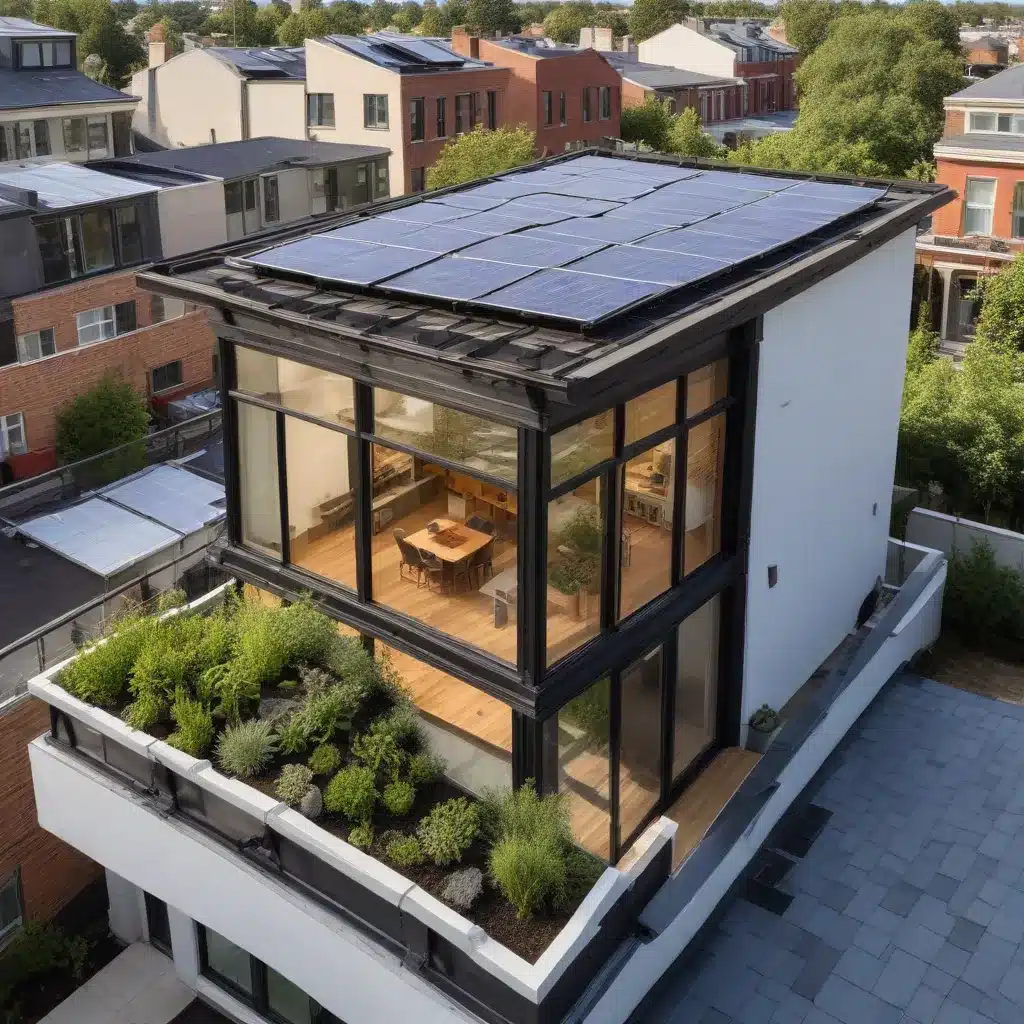
Sustainable Home Extensions: Optimizing Sustainable Building Rooftop Solar Systems
As an experienced home extension consultant, I’m excited to share my insights on optimizing sustainable building practices, with a particular focus on rooftop solar systems. In today’s era of growing environmental consciousness, homeowners are increasingly seeking ways to reduce their carbon footprint and adopt more eco-friendly solutions.
Sustainable Building Practices
Sustainable home extensions go beyond just aesthetics – they’re about creating living spaces that are energy-efficient, environmentally-friendly, and resilient. Let’s explore the key principles of sustainable building that can be applied to your home extension project.
Energy-Efficient Design
One of the cornerstones of sustainable construction is energy-efficient design. This involves carefully considering a building’s orientation, window placement, insulation, and HVAC systems to minimize energy consumption. By maximizing natural lighting, optimizing air flow, and incorporating high-performance building materials, you can create a home extension that requires less fossil fuel-derived energy to heat, cool, and power.
Environmentally-Friendly Materials
The materials used in your home extension can have a significant impact on its overall sustainability. Opt for renewable, recycled, or reclaimed materials whenever possible, such as bamboo, cork, or salvaged wood. These alternatives not only reduce waste, but also have a lower embodied energy compared to traditional building products. Additionally, look for materials with low volatile organic compound (VOC) emissions to promote indoor air quality.
Waste Reduction Strategies
Minimizing construction waste is another crucial aspect of sustainable home extensions. Prefabricated and modular building techniques can greatly reduce material waste, as components are precisely measured and manufactured off-site. On-site, implement strategies like material recycling, efficient cutting, and just-in-time delivery to further limit waste sent to landfills.
Rooftop Solar Systems
One of the most impactful sustainable features you can integrate into your home extension is a rooftop solar system. Solar power offers a clean, renewable energy source that can significantly reduce your home’s carbon footprint and utility bills. Let’s dive deeper into the key considerations for incorporating solar into your project.
Solar Panel Technology
Solar panel technology has advanced significantly in recent years, offering improved efficiency, durability, and aesthetics. When selecting solar panels for your home extension, consider factors like panel efficiency, power output, and physical dimensions to ensure optimal performance and integration with your roof design.
Grid Integration and Net Metering
Connecting your rooftop solar system to the electrical grid through net metering is a crucial step. This allows you to sell excess energy generated by your panels back to the grid, effectively reducing your energy costs. Familiarize yourself with local regulations and utility company policies to ensure a seamless grid integration process.
Battery Storage Solutions
While not a necessity, integrating battery storage with your rooftop solar system can provide additional benefits. Battery storage allows you to store excess solar energy generated during the day for use during peak demand or when the grid is down, enhancing your home’s energy independence and resilience.
Optimizing Solar System Performance
To ensure your rooftop solar system operates at its full potential, careful planning and consideration of various factors is essential. Let’s explore the key elements that contribute to optimal solar system performance.
Site Assessment and Orientation
The orientation and positioning of your rooftop solar panels are crucial for maximizing energy generation. Conduct a thorough site assessment to determine the optimal placement, taking into account factors like roof angle, shading, and local climate conditions. Leverage tools like solar path diagrams and computer simulations to inform your panel layout.
Panel Efficiency and Placement
The efficiency and placement of your solar panels can have a significant impact on their energy output. Choose high-efficiency panels that are well-suited for your home’s energy needs and roof design. Carefully position the panels to minimize shading and optimize exposure to sunlight throughout the day.
Maintenance and Monitoring
Proper maintenance and regular monitoring of your rooftop solar system are essential for maintaining optimal performance. Regularly clean the panels to remove dust and debris, and monitor system output to identify any issues or degradation over time. Consider incorporating smart home technologies that enable remote monitoring and automatic performance optimization.
Regulatory and Financial Considerations
When planning your sustainable home extension with a rooftop solar system, it’s crucial to understand the regulatory and financial landscape. Let’s explore some key factors to consider.
Building Codes and Permits
Ensure your home extension and solar system design comply with all local building codes and regulations. Work closely with your local authorities to secure the necessary permits and approvals, as requirements may vary depending on your location.
Incentives and Tax Credits
Fortunately, many governments and utility companies offer incentives and tax credits to encourage the adoption of renewable energy solutions like rooftop solar. Research available programs in your area, as these can significantly improve the return on investment for your sustainable home extension project.
Return on Investment Analysis
Calculating the potential return on investment (ROI) for your rooftop solar system can help you make an informed decision. Consider factors like energy savings, incentives, and the system’s lifespan to determine the long-term financial benefits. Consult with solar experts or financial advisors to ensure you have a comprehensive understanding of the economic implications.
By incorporating sustainable building practices, optimizing rooftop solar systems, and navigating the regulatory and financial landscape, you can create a home extension that not only enhances your living experience but also contributes to a more sustainable future. Remember, every step you take towards a greener, more energy-efficient home can make a meaningful difference. If you’re ready to embark on your sustainable home extension project, our team of experts at ABC Home is here to guide you every step of the way. Contact us to schedule a consultation and start your journey towards a more eco-friendly, energy-efficient living space.
















